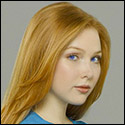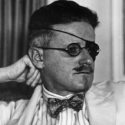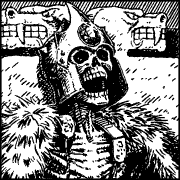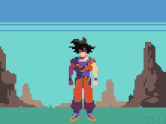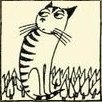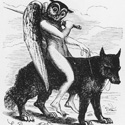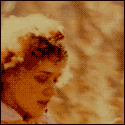|
Molly Bloom said it was a visual hurdle. I was addressing anyone who thinks Special Literary Writing Rules are a good idea.
|
|
|
|

|
| # ? Apr 19, 2024 23:12 |
|
Martello posted:Molly Bloom said it was a visual hurdle. I was addressing anyone who thinks Special Literary Writing Rules are a good idea. I think at times they have their place, but only when they're not terribly distracting. I read about a book where this black civil rights leader was killed and his character continues to narrate. In the parts where the dead him narrates, he doesn't get anything capitalized. It's kind of to signify that's him. I understand stuff like that, but something like no quotations seems more like a total distraction and something that would just slow the flow of the story. I was looking into this and someone said just write with them and go back and take them all out. If they're so needed by the writer, that's even further proof they should be left in. Hell, I have issue with the single quotation some traditional British books use (like in the Doctor Who novelizations). I just wasn't used to it.
|
|
|
|
I Am Hydrogen posted:I like your ideas. Is it okay if I use them? I really touched a nerve here apparently. I never said they were a visual hurdle. I asked a question and got some feedback. Ok, I'm being a dick and not very helpful. How about this - post a no-quotations or whatever short in Fiction Farm, and people will tell you what they think of it. I will be one of those people.
|
|
|
|
I'm curious to see this too, I looked up examples but they were kind of bad in terms of just general writing.
|
|
|
|
I often feel more comfortable and confident when I write in present tense, is that a horrible thing? I've never even considered that it's some kind of pretentious and bad thing.
|
|
|
|
|
Black Griffon posted:I often feel more comfortable and confident when I write in present tense, is that a horrible thing? I've never even considered that it's some kind of pretentious and bad thing. People write in present tense some of the time, especially in first person. I forgot what it was I read like this recently.
|
|
|
|
Martello posted:Ok, I'm being a dick and not very helpful. How about this - post a no-quotations or whatever short in Fiction Farm, and people will tell you what they think of it. I will be one of those people. I'll post an excerpt of something when I get a chance. It never occurred to me that it was pretentious, which it looks like it is, and that's not how I want to come off. I got exactly what I came here for - you guys called me an idiot rather than submitting it and having them call me an idiot. I decided to look into it a bit more and found this gem, which convinced me not to do it.
|
|
|
|
Martello posted:Molly Bloom said it was a visual hurdle. I was addressing anyone who thinks Special Literary Writing Rules are a good idea. I don't really think special rules are a good idea. I'm going to weasel a little here and say that it's easier for me to work without them, is all. Things flow better. Then I can manipulate the text in whatever way I like. This usually means correcting my punctuation. I don't present much of my writing without quotes because it isn't strong enough yet to stand without. Single quotes are my default now. Again, I'll weasel- The 'visual hurdle' bit is more the Joycean defense of quotation-marklessness (and McCarthy, if I remember correctly). And, as I said, lack of apostrophes drives me nuts.
|
|
|
|
It's weird because of the last 5 books I've read, 4 have used no quotations (A Hologram for the King, Galore, All the Pretty Horses, Autumn of the Patriarch) so I feel like, especially with those first two, no quotations is becoming something that is more accepted but I also think it's harder to pull off. For my own writing it's just never felt very natural and like Chillmatic said I think it messes with the internal voice a lot of readers have. And besides that I haven't really read a great argument for removing quotation marks outside of a style choice.
|
|
|
|
CB_Tube_Knight posted:Hell, I have issue with the single quotation some traditional British books use (like in the Doctor Who novelizations). I just wasn't used to it. I'm probably pretty biased here- I came from poetry and I do a lot of nonstandard punctuation/formatting poo poo, often just because it looks good.
|
|
|
|
I'm writing a story in first person present right now, which I don't usually do, because it feels natural for this story which is closely based on the sense experience of a particular person. If you don't have a particular reason for it though I'd stick to standard form.
|
|
|
|
SurreptitiousMuffin posted:I kind of understand not liking the McCarthy thing but I don't get this. "" is completely arbitrary and a ton of European languages use something completely different: «», which are called Guillemet. It's not completely arbitrary, they're the way most American English speakers denote a direct quote. That's like saying that the upside down punctuation used in Spanish is arbitrary because someone else doesn't use it, it's part of their language. Sure languages change over time, but typically not in a way that makes clarity harder.
|
|
|
|
I Am Hydrogen posted:I decided to look into it a bit more and found this gem, which convinced me not to do it. Good call- I really think you're better off leaving well enough alone. To expand on what I said earlier, not using anything at all (quotation marks or otherwise) to denote your characters' speech is to rob them of their voice and turn them into mere props, or set pieces. Plain and simple. I do enjoy some of McCarthy's work, but frankly his characters are second rate compared to the stunning and isolated landscapes he portrays. (to the point where he sometimes refuses to name a character, or gives them everyman type of names, which should show you how he views them.) Which is why that style works for him. The characters are only there to flesh out the backdrop, the setting, the scene itself- and usually not to tell a character driven story.
|
|
|
|
CB_Tube_Knight posted:It's not completely arbitrary, they're the way most American English speakers denote a direct quote. That's like saying that the upside down punctuation used in Spanish is arbitrary because someone else doesn't use it, it's part of their language. If they make it more clear that someone is speaking, you should use them. If it's already clear, you don't need to. It takes an extremely good writer to drop them but if someone is capable of pulling it off, I don't see the problem.
|
|
|
|
Is it wise to throw some information about the two that your story is set in to break up the story? I'm considering doing it so that my readers don't get bored with the story and have a better feel for the story. Would it be fluff or would it be a good idea?
|
|
|
|
SurreptitiousMuffin posted:I kind of understand not liking the McCarthy thing but I don't get this. "" is completely arbitrary and a ton of European languages use something completely different: «», which are called Guillemet. I don't know why CB_Tube_Knight doesn't like single quotation marks, but I just find that they look too much like apostrophes. Double quotes clearly mark the start and end of a quotation, but sometimes if there's a confusing bit of dialogue or I'm tired or whatever I can get a little thrown off by a mix of single quotes and apostrophes. There's nothing wrong with «» from the point of view of clearly marking the quotation, but an English-speaking reader won't automatically associate them with dialogue, so they're not as obvious if you're writing in English, and you don't really want people to be thinking about the punctuation instead of the content. screenwritersblues posted:Is it wise to throw some information about the two that your story is set in to break up the story? I'm considering doing it so that my readers don't get bored with the story and have a better feel for the story. Would it be fluff or would it be a good idea? I don't understand how this would make people less bored. Maybe it's just the way I'm interpreting what you're saying, but it sounds like these would be bits that you could just skip without losing anything from the story, so why would you include them in the first place? If you need to explain things about the setting then that should generally happen as part of the story, not as isolated bits breaking it up. An obvious exception is in sci-fi or fantasy quoting bits of an encyclopaedia or history book or something between (or at the start of) chapters or sections, to fill in some background that the characters in your story would be familiar with, but it has to match the style of the rest of the story. An example is in Foundation where the whole thing is presented as a sort of historical novel from the future and excerpts from the Encyclopędia Galactica are given at various points to provide background context to whatever's happening. Or if you're having your protagonist narrate as though they're telling the story they can just explain things as they go, if necessary.
|
|
|
screenwritersblues posted:Is it wise to throw some information about the two that your story is set in to break up the story? I'm considering doing it so that my readers don't get bored with the story and have a better feel for the story. Would it be fluff or would it be a good idea? This can quite easily turn into "He was wearing black socks", if you could call it that. If you're worried about the readers getting bored, you have a problem that infodumps certainly won't solve.
|
|
|
|
|
I recently read a pretty good example of quotationless dialogue, but it's use is probably not quite the same as what we're focusing on. Death's dialogue in Wheel of Time (specifically Color of Magic) used bolded text instead of quotations for his lines which seemed pretty effective, but ultimately it sidestepped the issue entirely since the bolded text filled the role of quotations for making the dialogue stand out.
|
|
|
|
Pladdicus posted:I recently read a pretty good example of quotationless dialogue, but it's use is probably not quite the same as what we're focusing on. As a reader and critiquer, special formatting and writing gimmicks/special snowflake conventions like bolded dialogue always make me suspicious. Poor writers tend to abuse said gimmicks to hide their own technical inadequacy, especially in terms of prose. Usually, the weird formatting stuff is used in lieu of actual an actual description. That being said, more often than not nowadays I've seen dialogue from a deity being bolded. Also, before I start critiquing some of the writing on the board, is there a general taboo against using Google Docs? I saw that pipes! put a disclaimer saying that GDocs is considered outside of SA, but is there any other stigma against it?
|
|
|
|
4 of the last 5 short stories I've written have had no quotation marks/punctuation whatsoever. I would almost say that I write exclusively without them now, but it just so happens that the story I'm currently writing has them. And why's that? It fits the story. Like many others, it started with Cormac McCarthy. I tried to read The Road four years ago and I hated it. Couldn't follow a drat thing. I was, perhaps, a young reader back then. One year ago I attempted to read the book again, and now it's easily one of my favorites. I then picked up Blood Meridian (a Western he wrote and is perhaps his most acclaimed novel), which partially inspired me to attempt my own. For me, the decision on whether or not to use quotation marks harks to the story's tone more than anything. There are certain qualities, certain impressions you can (attempt to) feed into a reader's mind or subconscious when you embed your dialogue into the narrative. Personally, I feel it often gives a more earthy feel. Hardened and stripped. Bare. I'll give you guys two examples. These are both from stories I've written this year. This first example is from the second page of a western I wrote. It's 1858 and the narrator has woken up drunk and in a dirty tub. His name is Seth and the name of his identical twin is Elijah. (click to enlarge)  This isn't the best example I could've picked of pulling off this effect, as it has a lot of "he said"s in it. As the story started to flow, those dialogue tags began to drop, but I wanted to show you an example from early in the story where little had been established. This second example is from the fourth page of a contemporary short story that may or may not include a zombie apocalypse. It follows a pair of children: a 16-year-old boy (the narrator) and his 8-year-old sister. They're venturing out from their countryside plot of land for the first time in their lives to try and find their mother, who has gone missing for over a month. (click to enlarge)  I felt that both of these stories exhibited all of those aspects (earthy, hardened, bare) that I mentioned above. And personally, I feel that stripping away the quotation marks helps in that immersion. It does require a closer read from the reader, but if you pull it off skillfully, then it starts to just meld together into a cohesive entity. If you do it right, the hurdle dies. But as I touched on, I'm currently writing a story with quotation marks. Why? It's lyrical. Fantastical. It's set in a very real and natural environment, but it touches more on the poetic and incredulous around us: fireworks from a damaged but driven mind. It harks back to France and futurism. In a sense, the stripped down nature of a quotation-less structure didn't gel. And it's odd, I almost knew that before I'd written a single word of the piece. So basically punctuation mark removal can mean different things to different writers and readers, but that's my defense of the technique. Mike Works fucked around with this message at 08:58 on Oct 18, 2012 |
|
|
|
Since we're arguing about poo poo, can I ask about white people writing minority characters? I've been reading around on the subject and finding the answer to be a general 'don't do it (unless you have good beta readers from said ethnic group and even then probably not)'. I know the Thunderdome had a prompt to write as far away from your own experience as possible, but in a more realistic, more publishable way- is it feasible?
|
|
|
|
Write them as you would a 'typical' person, then get someone you trust to check it over to make sure you didn't goof up anything cultural. I mean, the reverse of this thought is that people that aren't white should never write about white people, issues of privilege and power dynamics aside (I'm being a bad person, you should never put them aside  ). I mean, I don't think I'm all that different from a white person, fundamentally. People are more similar than they are different. My experiences have definitely shaped me, but I don't think that can't be remedied by trying to put yourself in your character's shoes, some hard editing, and not taking "common" experiences for granted. What specific group are you talking about, and is this an immigrant community or people from their native land in their native land? ). I mean, I don't think I'm all that different from a white person, fundamentally. People are more similar than they are different. My experiences have definitely shaped me, but I don't think that can't be remedied by trying to put yourself in your character's shoes, some hard editing, and not taking "common" experiences for granted. What specific group are you talking about, and is this an immigrant community or people from their native land in their native land?But don't center it around a white protagonist whatever you do.  Also, I just found the October writing thing. Will join you guys shortly.
|
|
|
|
Molly Bloom posted:Since we're arguing about poo poo, can I ask about white people writing minority characters? I've been reading around on the subject and finding the answer to be a general 'don't do it (unless you have good beta readers from said ethnic group and even then probably not)'. OK, there's the risk of accidentally writing some godawful racist caricature, but isn't that a reason to not write godawful caricatures, not to not write characters not of your skin colour? There aren't enough non-white characters in mainstream fiction; somebody's got to write them.
|
|
|
|
Runcible Cat posted:Hang on hang on hang on - so white people should never ever write non-white characters? WTF? Should male writers never write female characters (or vice versa) too? Are characters with a sexuality different from the writer's verboten too? Or does it only apply to straight writers in that case? That was my thought- it's better to write them and hopefully write them well but I'm a bit at sea at the moment having read what's out there. But there's a lot out there that has made me second guess myself. Currently, I'm working on a Native American character (it fits the area, I've had some contact with the area and the culture but not enough to be an expert). So I went exploring and started looking for NA opinions on white people writing Native characters after reading about 'RaceFail09'. On one hand, there's the fact that minority characters are vastly under-represented. On the other hand, what I've been finding suggests that creating a character that will meet with any approval is extremely difficult. I'm just writing her as a person. I mean, it's how I look at people. But then I find very serious people saying 'the text should say that this is a stereotypical statue of a wooden Indian to let readers know that we don't look like that.'
|
|
|
|
Molly Bloom posted:That was my thought- it's better to write them and hopefully write them well but I'm a bit at sea at the moment having read what's out there. But there's a lot out there that has made me second guess myself. Tony Hillerman is a white guy who wrote a lot of books about Native Americans (Navajo nation in particular) and was very successful. AFAIK, he was critically accepted by the Navajo and the general populace. Maybe check out a few of his books.
|
|
|
|
Seldom Posts posted:Tony Hillerman is a white guy who wrote a lot of books about Native Americans (Navajo nation in particular) and was very successful. AFAIK, he was critically accepted by the Navajo and the general populace. Maybe check out a few of his books. Just about the right area for me, so I do have few on order. Hillerman seems to be the exception to the rule. I also see J A Jance recommended, as she lived/worked on a rez. Molly Bloom fucked around with this message at 14:10 on Oct 18, 2012 |
|
|
|
Molly Bloom posted:Since we're arguing about poo poo, can I ask about white people writing minority characters? I've been reading around on the subject and finding the answer to be a general 'don't do it (unless you have good beta readers from said ethnic group and even then probably not)'. Writing Excuses recently had an episode about this: Writing the Other. Aside from either perpetuating stereotypes or the reverse side of that coin - tokenism, I think one of the biggest mistakes people make is to start writing with the thought, "Okay, what would I do if I were a girl/gay/Latino/etc?" This is an immediately flawed foundation, and that way of thinking probably ruins a lot of characters no matter how good the intentions. Because nobody thinks that way; nobody thinks, "Okay, you're a black woman. What do you buy?" It's very artificial, and no way to write a successful character of any type. Our background, and our relationship with our background, certainly influences us. The more deeply you know your characters, the more you can allow those influences to creep in subtly and naturally, and this is just as true for personality, family life, education, age, and experiences as it is for culture. This requires a fair amount of research and taking the time to build nuanced, complete humans. Many writers don't take time to do this for any character, much less ones of different backgrounds. If you write anything besides memoirs you are writing outside of your experience, and that takes work. Anyone who says writing minority characters is "too hard" either doesn't have the ability to write fiction at all or is making excuses -- it requires the same skills as any good writing. Other links from the podcast's comment section: The Danger of a Single Story Straight White Male: The Lowest Difficulty Setting There Is The Importance of Casting In Breaking Open Movie Stereotypes *Edit: The above links also illustrate how choosing not to write others is not only lazy, but perpetuates itself; and why minority people often don't have the same difficulties in writing characters of the majority. When people talk about privilege, they're usually discussing systematic social inequalities, but it also has an impact on you as a writer. The vast majority of our movie stars and television leads and novel protagonists are white (specifically white, straight, and male), and if you live in this culture you're constantly being shown a thousand different stories about white people, straight people, and men, so is it any surprise that a person from a different background has a pretty good handle on writing the majority? Unfortunately the reverse isn't true. Other viewpoints are either invisible or regulated to "incomplete stories" as Chimamanda aptly calls them, which is a disadvantage to both the marginalized groups and anybody who wants to write about them. tldr; writing more diverse voices makes writing diverse voices less hard. The invisible becomes visible and accessible. Crisco Kid fucked around with this message at 21:15 on Oct 18, 2012 |
|
|
|
Crisco Kid posted:tldr; writing more diverse voices makes writing diverse voices less hard. The invisible becomes visible and accessible. Awesome links, thanks for that.
|
|
|
|
Mike Works posted:4 of the last 5 short stories I've written have had no quotation marks/punctuation whatsoever. I would almost say that I write exclusively without them now, but it just so happens that the story I'm currently writing has them. And why's that? It fits the story. This sounds like one of the issues I have with literary fiction. Not to say it sounds pretentious, but seriously if you had to struggle through reading it the first time (and not because of something being wrong with you) then mission failed. I want my story as presentable as can be to the largest audience possible within reason. Molly Bloom posted:Since we're arguing about poo poo, can I ask about white people writing minority characters? I've been reading around on the subject and finding the answer to be a general 'don't do it (unless you have good beta readers from said ethnic group and even then probably not)'. As a black person, I can tell you it pisses me off far more to see absolutely no black people in books (and no other people, like movies with no female characters, movies set in Miami and not a single hispanic person is around, etc). I have a pretty multi-cultral cast. I'm a little heavy on women, but that was intentional. I have two black main characters, two white and there's a Japanese American character I plan to add later. I try to include everyone within reason, I have a lesbian character (though she kind of wrote herself that way). Check out the podcast Writing Excuses did on Writing the Other, it's really funny actually. But I think an important point that they made is one of the best ways to avoid the pitfalls is to have more than one person of a race.
|
|
|
|
This may not be a popular opinion but I'mma stick with it. About writing "the other": you either understand people in terms of what makes them unique (race, gender, sexual orientation, weight, height, childhood etc) or you do not. If you do not, just be warned that there are no shortcuts to gaining that understanding, period. This is why most authors of all backgrounds stick with what they know. And so the whole issue of how to write those kinds of characters is a complete red herring. This is an issue of author character, hands down. Ever noticed how rarely a famous author is suddenly discovered to be, after having published 20 books, a nazi or some other kind of terrible poo poo? Usually anyone even half paying attention can spot that stuff from book number one. Writing is a powerful glimpse into the author's character in nearly every case. Racist authors always look like racists. And this isn't an accident, either- as though perhaps the wrong sequence of nouns and adjectives were used- but because the author is, well, a racist. (substitute racist with sexist, homophobic etc as needed) On the flip side, what happens most often now days is that your average straight white male writer simply doesn't know any black transgendered muslims that he may want to write about. So when he tries it, it just looks goofy or borderline offensive. That means it's up to you to allow your mind to wander or allow your experiences to broaden. The most simple way I can put it is this: Writing "the other" involves an understanding of how to address and even celebrate the characteristics that make a given fictional person unique, without making it entirely about those things. Making a character "The black character" is every bit as stupid as making him "The White character but with Black Skin". In other words: three dimensional characters are never offensive. Make your gay character a fully realized person and nobody will care how many gay friends you have in real life.
|
|
|
|
Chillmatic posted:About writing "the other": you either understand people in terms of what makes them unique (race, gender, sexual orientation, weight, height, childhood etc) or you do not. I want to point out that you also need to understand what makes all people the same. Hell, you just need to understand people. I think what you're saying here is you shouldn't pretend a character's differences and unique viewpoint don't exist, but a lot of people tend to take this too far and think "this character is a woman/black person/gay person/whatever, they must not be anything like me and must constantly think about the fact that they are a woman/black person/gay person/whatever.*" At the heart of it, people are people and if you don't have a deep understanding of human behavior and an insight into the workings of the human mind your characters are going to be pretty flat. *I know women are 50% of the population and plenty writers are women, but as a woman there is nothing that makes me roll my eyes harder than a story written by a man where the female character thinks about or examines her breasts. We really don't feel ourselves up constantly or think about ourselves as "a perky A cup" or whatever, hence my mention of this category.
|
|
|
|
squeegee posted:I want to point out that you also need to understand what makes all people the same. Agree 100% I tried to cover that when I said "three dimensional characters are never offensive". One of those three dimensions is the same universal humanity you're describing. quote:At the heart of it, people are people and if you don't have a deep understanding of human behavior and an insight into the workings of the human mind your characters are going to be pretty flat. Again, totally agree. I guess I just often see people take that to too much of an extreme, more the other way around. For example, in a given story, you see characters who may be incredibly diverse in terms of gender or race or religion etc- but in their dialogue, behavior, mannerisms, beliefs and so on, they all act 100% alike. That kind of thing may be less outwardly offensive than a token female character who exists only to be a female. But to me, what's even worse is when a male writer just lazily puts breasts on a character he originally wrote as his own self, claiming that "well, we're all just people, right?" What you end up with then is that every character who isn't a white male simply might as well be anyway. And that, to me, is more insidious and dishonest on the part of the writer. quote:I know women are 50% of the population and plenty writers are women, but as a woman there is nothing that makes me roll my eyes harder than a story written by a man where the female character thinks about or examines her breasts. We really don't feel ourselves up constantly or think about ourselves as "a perky A cup" or whatever, hence my mention of this category I think that for every time a woman author sees this happen, her next story should include a male character who, for no reason whatsoever, has to size up his penis during his opening scene- and finds it to be woefully inadequate. Chillmatic fucked around with this message at 04:25 on Oct 19, 2012 |
|
|
|
squeegee posted:*I know women are 50% of the population and plenty writers are women, but as a woman there is nothing that makes me roll my eyes harder than a story written by a man where the female character thinks about or examines her breasts. We really don't feel ourselves up constantly or think about ourselves as "a perky A cup" or whatever, hence my mention of this category. I dunno, I know plenty of women who talk about their breasts often, and persumably think about them often too. Chillmatic posted:I think that for every time a woman author sees this happen, her next story should include a male character who, for no reason whatsoever, has to size up his penis during his opening scene- and finds it to be woefully inadequate. Just like I know plenty of dudes who discuss their dick size frequently, be it larger or smaller than average. A good friend of mine used to pull it out to drunk-piss in the middle of the street and shout to the sky, "Why is it so small? Why, God, why?" No poo poo. My point is, just because we and our friends "don't do" certain things, especially involving sex for whatever reason, doesn't mean it doesn't happen and can't be written about.
|
|
|
|
Martello posted:My point is, just because we and our friends "don't do" certain things, especially involving sex for whatever reason, doesn't mean it doesn't happen and can't be written about. Here be dragons, dude. Seriously. You just described a friend of yours who pulls out his dick at parties and laments its size. I know nothing else about him, and yet you telling me that gave me a very particular impression of that friend. So it is with your writing. If there's a good reason that you, the author, want to tell us that a woman is feeling or describing her breasts for no reason or a guy sizing up his dick for no reason, then you should do so. But absent a good reason in terms of the story itself, people who do this come off as creeps and weirdos. I'd go out on a limb here and say that the reason that male authors are so guilty of this (and they really are, at times) is because they themselves can't actually see a female character in their heads unless they know what her tits look like. And so they stuff that nice little detail in there, assuming that everyone else is just as dense. edit: and lest I be called a prude - if sex is something that is imminent or in progress in your story, then yeah you're going to have to describe different parts of the body, which is totally understandable. I can't speak for squeegee, but I got the impression she was talking about those books where a woman is introduced standing in front a mirror, naked, and playing around with her breasts for absolutely no reason whatsoever- or "thinking" about them with no relevant context. I mean yeah, I think about my dick sometimes, but I also think about how I can stop overcooking pasta so badly. Neither of these needs to make it into a novel "just because it's there." Chillmatic fucked around with this message at 05:43 on Oct 19, 2012 |
|
|
|
Yeah I didn't mean that you should just bring this poo poo up for no narrative reason. But sometimes there is one. Like if you want a character to be the kinda guy who pulls his dick out and loudly laments his size. You know what I mean? People tend to leave sex and sex talk out of writing because they don't want to write "erotica," yet sex is a pretty loving common topic between humans of both genders, be it around a water cooler or while cleaning weapons or whatever. I know you and I have had the "realistic dialogue" conversation before, but this is one of those things that's always a pet peeve of mine. Saving Private Ryan has that seen where Ed Burns is telling the story about the busty woman at his mother's seamstress shop. It has nothing to do with the actual storyline, but it gives a glimpse into Reiben's past, personality, and it's very much the kind of thing we soldiers talk about during those boring lulls in combat. e: An example of thinking about sex parts being unnecessary and creepy is in one of the A Song of Ice and Fire books where Dany is walking somewhere and absently thinks about how her breasts feel against the rough weave of her Mongol vest. Ok, so now we know she has a rough Mongol vest on. Not really necessary to describe how it felt against her breasts specifically. So I think we might actually be on the same page here. Martello fucked around with this message at 06:01 on Oct 19, 2012 |
|
|
|
CB_Tube_Knight posted:This sounds like one of the issues I have with literary fiction. Not to say it sounds pretentious, but seriously if you had to struggle through reading it the first time (and not because of something being wrong with you) then mission failed. And again, I was a young and impatient reader four years ago. After I expanded my mind and gave the book an actual shot, it became one of my all-time favorites. You should really try reading it.
|
|
|
|
Mike Works posted:The vast majority of (contemporary) literary fiction that I've read over the past few years have had next to no hurdles whatsoever. I understand the notion of wanting to read the largest possible audience, but condemning all of literary fiction is pretty rash or shortsighted. I'm not saying literary as a whole is full of hurdles. But people perceive it as being so because of things like this. And doing things like this seem to be kind of like creating hurdles that don't need to be there really. I would like to say I will read it, but to be honest I don't think it fits into my type of book. Usually I stick to genre fiction, I gave some books a friend of mine recommended mostly because the recommendation came from her. I bore very easily with books and will just put them down if they bore me. All of the erotica I have tried to give a chance did this. Lord of the Rings did this. A Clash of Kings did this too. It's one of the reason that I doubt that my fiction will ever get very long because I tend to figure that things don't typically need to be all that long.
|
|
|
|
Martello posted:e: An example of thinking about sex parts being unnecessary and creepy is in one of the A Song of Ice and Fire books where Dany is walking somewhere and absently thinks about how her breasts feel against the rough weave of her Mongol vest. Ok, so now we know she has a rough Mongol vest on. Not really necessary to describe how it felt against her breasts specifically. So I think we might actually be on the same page here. If the sex in your story has a point (tells us something about a character, moves the plot forward etc) then leave it in. If it's just there so you/your readers can rub one out, chop it.
|
|
|
|
Just to weigh in a bit on "writing the other", this question/issue is not only a matter of "writing what you know", but goes to a larger issue of thinking about writing as a cultural product in a social context. The idea of someone writing a character outside of their race is, maybe not surprisingly, a very different issue when it's someone of a dominant culture writing about someone who isn't, rather than the other way around. I've never had anyone question why I write a story with white male characters, and I've only seen the issue appear moreso in the context of "why not write about black [or any other group] people? we need more people writing about that experience from that perspective." Because this gets to the larger issue of having a voice within the culture, and being able to tell one's story and not be "invisible". Having a white person tell that story, for some people, becomes a larger irony that also becomes a larger part of a history when the only marginalized people in stories were allowed to have a voice from white male writers of a certain class. For some people, no matter how well written the character, there may be an issue with "writing the other" in itself, since it stand s a a cultural product that goes back to history, power dynamics, and all of the other things that make racism, sexism, "-ism"s complicated. For what its worth, I've not always been offended when I read stories of this nature, but seeing some racist aspects come through (despite the author's intentions), can be...uncomfortable. It's a complicated issue. I agree that more stories need to be written about people other than prototypical "white middle class male in first world country of England or the US," but I also think that we need to have more people from other groups publish and be popular and give voce to other perspectives in a way that you just can't get from interviews or observations or being friends with someone. I don't know if I'd open up completely about some of the issues I deal with a a black person to another person (and many people who do get backlash on it; this is another issue that's a part of all of this), but I would write about it myself. That said, if you do it, I 100% agree that research is important, more importantly talking to people. I can always tell when the story is a product of observations alone, since you can see how the characters are just being filtered through a mindset that's processing what's been seen and fitting things to stereotypes, rather than really fleshing out a character in interaction, etc. in a way that shows you can talk to people and understand how they work as humans. If you want to read examples and see how differently a story may come off based on who wrote it (if at all), try the book 20 Under 40. It's a collection of short stories from the New Yorker, and there are examples of stories written about people of color from authors who are white and of color. It was interesting to notice the differences when I read, but it may be a helpful study, since there's equal context (all great stories, published in the same place, etc.).
|
|
|
|

|
| # ? Apr 19, 2024 23:12 |
|
Chillmatic posted:I can't speak for squeegee, but I got the impression she was talking about those books where a woman is introduced standing in front a mirror, naked, and playing around with her breasts for absolutely no reason whatsoever- or "thinking" about them with no relevant context. Yeah, this is pretty much what I meant. If the character's breasts are relevant to the scene for some reason, then no one's going to be bothered if you mention them, but what I see a lot in male writing (especially amateur male writing) is poo poo like this: Martello posted:e: An example of thinking about sex parts being unnecessary and creepy is in one of the A Song of Ice and Fire books where Dany is walking somewhere and absently thinks about how her breasts feel against the rough weave of her Mongol vest. Ok, so now we know she has a rough Mongol vest on. Not really necessary to describe how it felt against her breasts specifically. So I think we might actually be on the same page here. where the man may think the breasts are relevant, because he's a straight man who has a hard time not thinking about this character's breasts or her physical body in any given situation. But just like painstakingly describing a character's hair color, eye color and clothing, we don't really need to know how large or perky a woman's breasts are and it comes off as kind of skeevy. I think it's better to err on the side of caution here. In reality, yes, a woman might look at herself in the mirror and think about her overall effect, including the size of her breasts, but that comes off oddly in fiction regardless of the gender of the author. And I can only speak for myself, but I really do not go around thinking "gee this fabric feels rough against my breasts" or "my breasts sure are perky today!" Pretty much the only time I think about them is to judge how they look in a certain shirt or if they are getting in my way when lying in bed at night (this is really loving annoying by the way!) Of course, sex scenes are another thing entirely. It makes perfect sense to be describing sexualized body parts during a sex scene. EDIT: Also, I just want to point out that "my female friend talks about her breasts all the time!" isn't necessarily a valid argument. I don't know your friend, but there's one major reason that a woman does that, and that's to garner male attention. Yes, that's a valid character trait, but you have to be sure that you really know what you're doing if you're going to write character like that as a male, or else you will come off as exploitative. squeegee fucked around with this message at 13:20 on Oct 19, 2012 |
|
|




